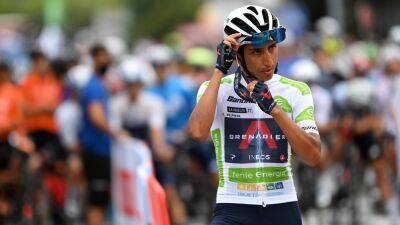Women’s Tour de France revival is reminder that ‘the fight for equality is far from over’
Former pro cyclist and filmmaker Kathryn Bertine is careful when choosing how to describe the 2022 Tour de France Femmes, which concluded on Sunday with Dutch cyclist Annemiek van Vleuten cruising to victory.
“Too many headlines are reading, ‘the first,'” says Bertine.
Other stories went with ‘inaugural’ which is more accurate — definition: “the first in a series of planned events” — but still misleading. “I think the general public just equates ‘inaugural’ with ‘first,'” she says.
For Bertine, this distinction isn’t just about semantics. It’s about making sure history isn’t erased.
If you want to talk about the “first” women’s Tour de France, you’d have to go back to 1955. That year, 41 athletes competed in a five-stage, one-off race that was contested separately from the men’s competition.
Nearly 30 years later in 1984, Tour de France organizers hosted a women’s race in conjunction with the men’s event, marking the first official Women’s Tour de France. Female cyclists competed on the same — albeit shortened — courses as the male riders.
“It didn’t occur to me that it wouldn’t keep going,” says American Marianne Martin, who won the 1984 Women’s Tour de France. “It definitely felt like the beginning. And this was how it was going to be from now on.”
It wasn’t.
The Women’s Tour de France was held five more times until race organizers dropped female athletes from the program after 1988. While other attempts were made to revive the event in coming decades, the official “Tour de France” name was off limits.
“We had to fight for women to even have access to the name, ‘Tour de France.’ Because that’s what ASO took away in 1989,” Bertine explains.
In 2013, Bertine — along with Emma Pooley, Marianne Vos, and Chrissie Wellington








